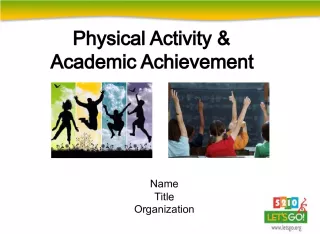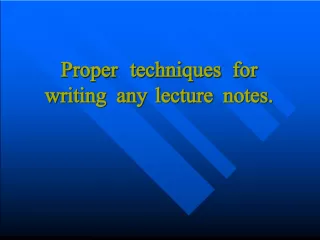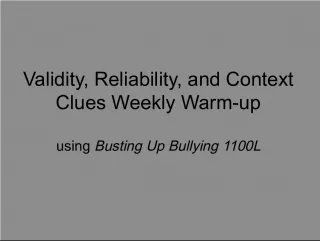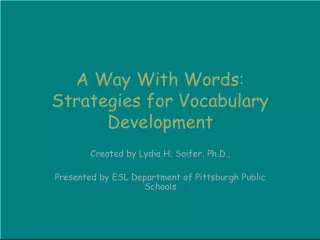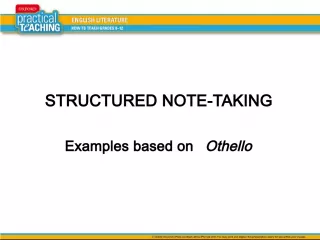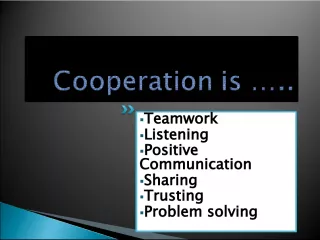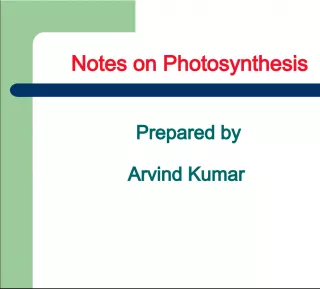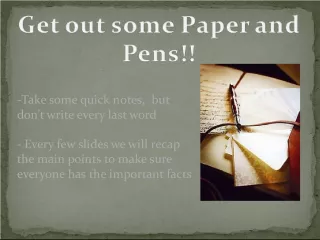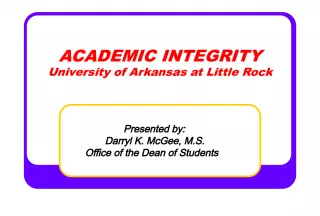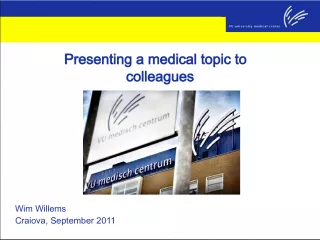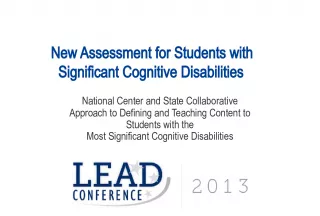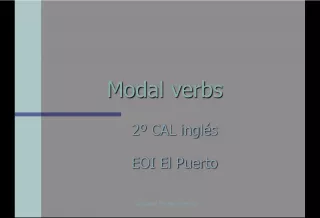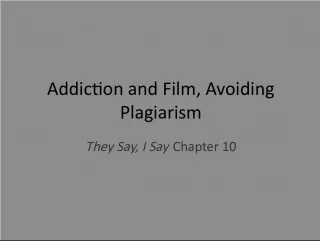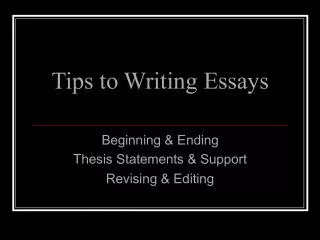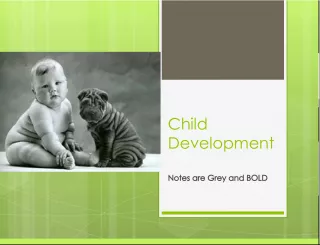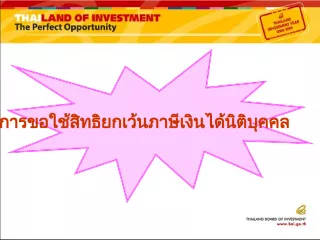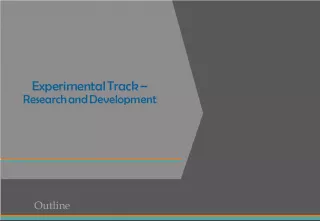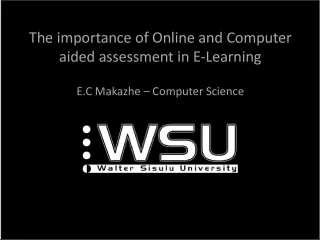The Benefits of Annotating: How to Take Effective and Efficient Notes for Academic Success
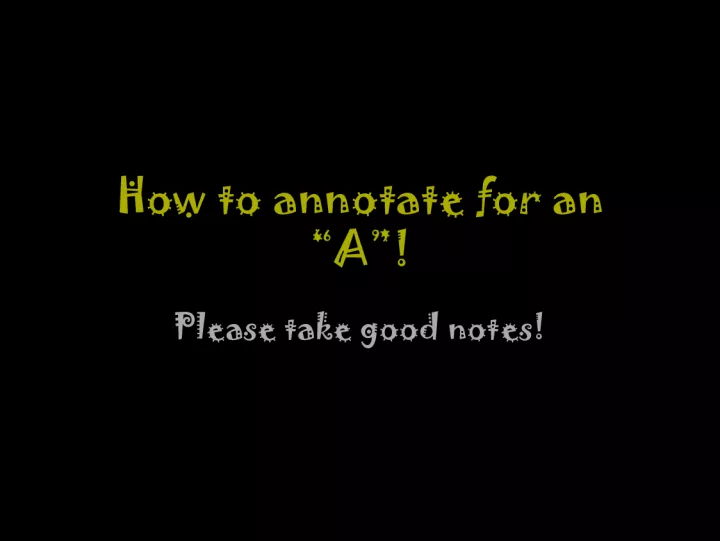

Many students dread the task of annotating texts, but studies have shown that adopting this practice can significantly improve one's ability to retain information and
- Uploaded on | 2 Views
-
 craig
craig
About The Benefits of Annotating: How to Take Effective and Efficient Notes for Academic Success
PowerPoint presentation about 'The Benefits of Annotating: How to Take Effective and Efficient Notes for Academic Success'. This presentation describes the topic on Many students dread the task of annotating texts, but studies have shown that adopting this practice can significantly improve one's ability to retain information and. The key topics included in this slideshow are . Download this presentation absolutely free.
Presentation Transcript
Slide1How to annotate for an“A”! Please take good notes!
Slide2UGH. I HATE ANNOTATING.• • Studies show that when we annotate, we not only remember information more accurately, but we are active readers which helps to not only remember information, but to also get more from a book. • Also, it will help you on your quizzes and tests! • And if you still need yet another reason, I promise it is a lesson that will serve you well for the rest of high school AND college
Slide3Ways to annotate well…• Have certain colors(of highlighters, pens, etc) represent certain themes • TAKE NOTES on the side of the page • Whatever you think, write down!
Slide4Note…• it is NOT enough to simply underline a section in a book. • It is also NOT enough to simply write “metaphor” above a metaphor. GOOD ANNOTATORS RELATE IT BACK TO THE BOOK, PLOT, AND CHARACTERS.
Slide5What to annotate for…• setting, plot, characters, symbols, diction, syntax, figurative language, theme, allusion, other (personal connections, etc.)
Slide6Themes in LOTF…• identity, civilization, evil, innocence
Slide7Essential Questions to the text/points toconsider while reading: • What does it mean to be an individual? • What does it mean to be an outsider? Is it possible to go back?
Slide8To stay prepared…• please keep these notes with you while you read until you get the hang of annotating well . Also, keep your bookmark and our class lists from the “Abandoned” worksheet with you as well. • These will all help you to annotate!
Slide9Now for Mr. W.G.• Is that Brad Pitt?!?! • No. That’s William Golding.
Slide10Important points…• He was brought up to be a scientist, but revolted (an INDIVIDUAL, if you will) • Was an English teacher (hooray!) • Was in the Navy during WWII. After the war, he wrote his best known novel Lord of the Flies • Born and raised in England • Golding was very interested in the idea of human violence, the idea of a conscience , and human nature
